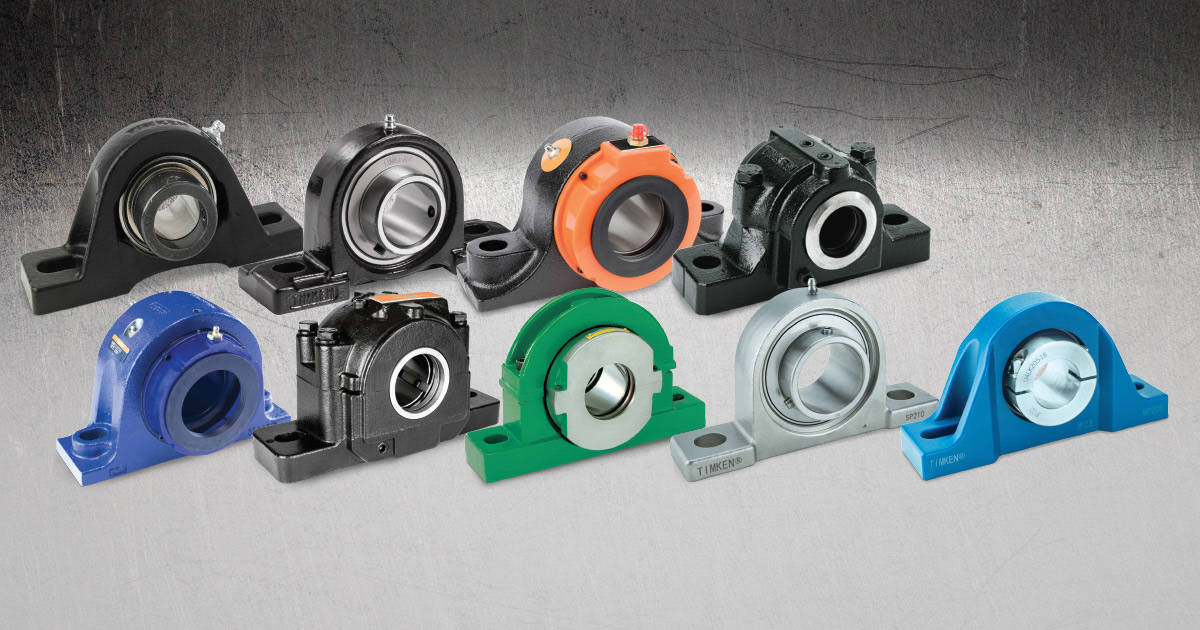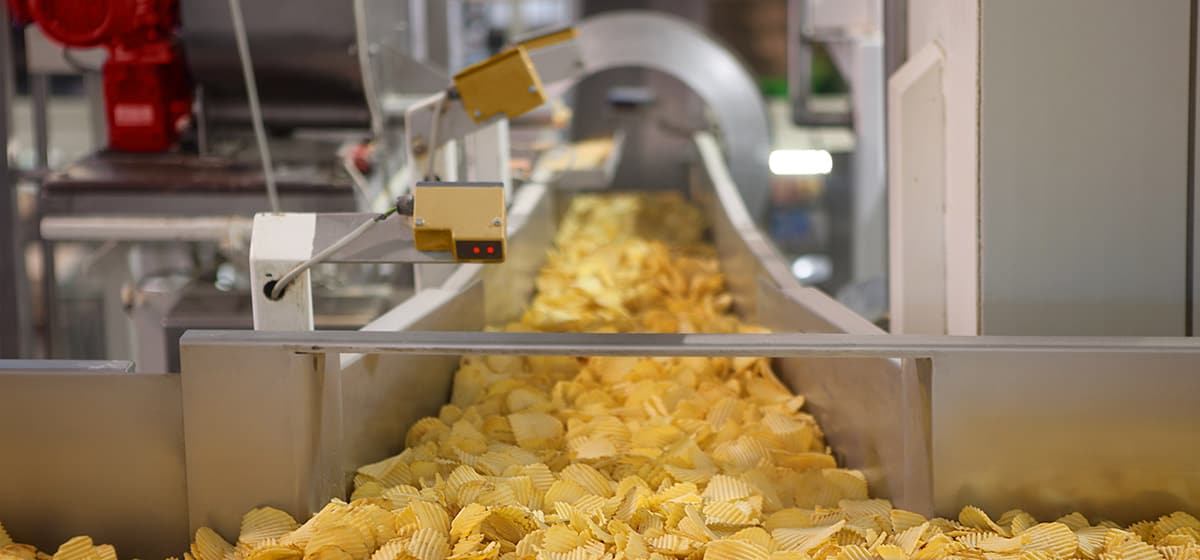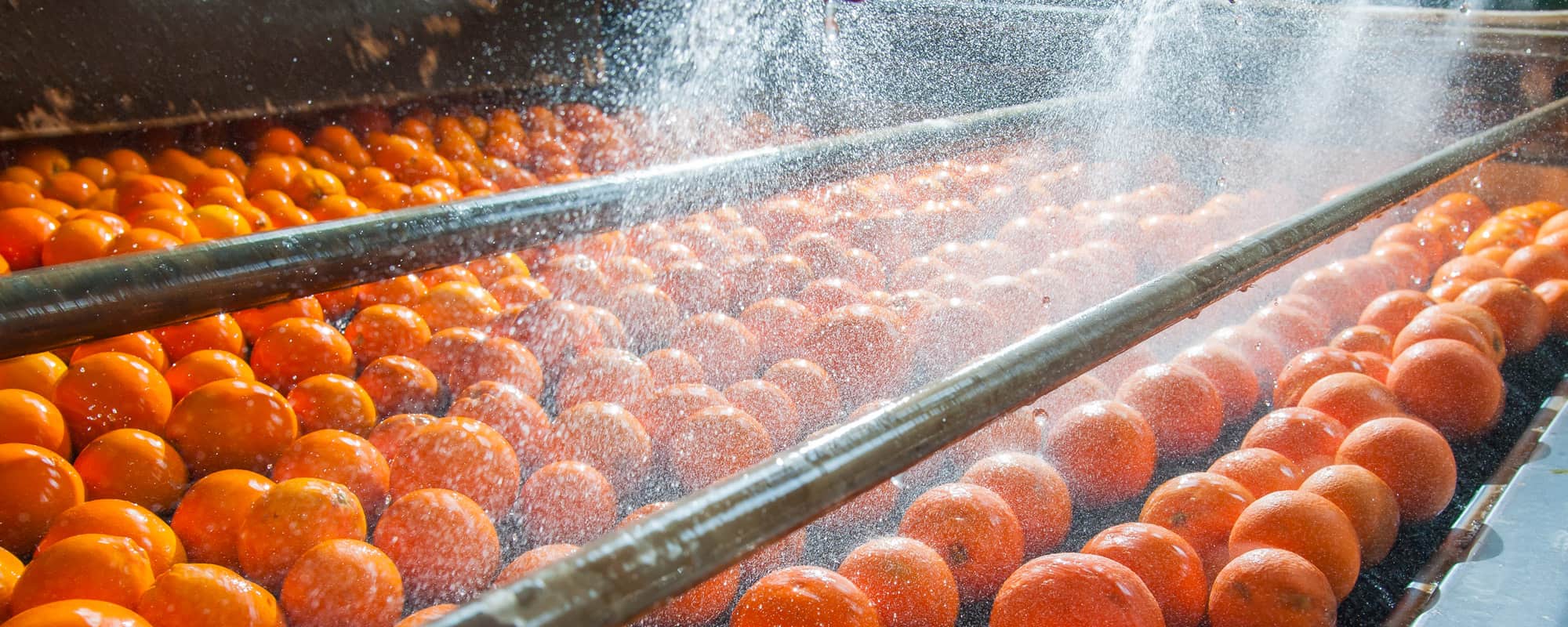Efficiency
Premium Product Lines for Food & Beverage
When you go to the store and purchase food for your family, you expect to come home with whatever the manufacturer’s label says you should be coming home with. A baby food pouch containing wild-caught salmon and organic butternut squash, for example, better have those two ingredients and nothing else.
Yet, as populations balloon around the globe and the demand for convenient, processed food expands, the factories producing our food do so at a scale unimaginable just a couple of decades ago. One processing plant in New York state, for example, produces 100,000 cases of baby food every day. The risk of food contamination among producers of that size is huge.
Thankfully, the machines at the heart of those operations increasingly feature premium components. USDA inspectors make their rounds continuously. Plant managers follow high-grade sanitation and maintenance protocols, scrutinizing every surface that touches consumable product. If a bearing or grinding gear leaches lubricant, if pieces of rust are found to be flaking off into the food—everything stops.
In large operations, the cost of a standstill can add up to $100 a minute. When you have truckloads of perishable goods waiting outside or making their way along the factory floor, uptime is everything.
An industry primed for premium solutions

Mike Connors, vice president, global marketing
Those high stakes are one reason the industry is a great fit for Timken, says Mike Connors, vice president of global marketing. Although Timken is relatively new to food and beverage, the company’s reputation for quality and engineering expertise is nevertheless opening doors at a considerable rate. “We’ve not had one equipment manufacturer refuse to talk to us when we reach out,” he says.
The conditions that can make working in a food processing plant difficult for humans often make it hard on machines, as well, which drives innovation and quality requirements. Contamination-prone processing areas, for example, can go through chemical washdowns several times a day. “Machinery doesn’t like hot, caustic water,” says Connors. Neither does it appreciate the high-heat environments necessary to produce such ubiquitous products as pasta, chips, or cookies.
Governments around the world mandate significant regulatory requirements to ensure food safety. “Those regulations require special solutions,” says Connors. “That situation fits nicely against the backdrop of our product offering.”
An expanding product line-up
The Timken Company didn’t count food and beverage as one of its core industries until recently. As the company’s product line grew, expansion into a full range of bearing products lined them up more closely with food and beverage customers. Acquisitions in mechanical power transmission also added a number of product categories in this space.
Meat processing equipment, for example, represents the heaviest of the heavy-duty machines found in a food processing plant. “You’ll often see spherical housed units there,” says Connors. Timken added that product line with the acquisition of QM Bearings and Power Transmission.
Next, the company acquired Drives, which brought stainless-steel chain into the product lineup. Stainless-steel couplings entered the mix with the purchase of Lovejoy in 2016.
All three businesses boosted Timken’s offering for the market, but the acquisition of EDT in 2017 was a tipping point for the company’s food and beverage product portfolio.
“EDT was a specialist in food and beverage,” says Connors. The acquisition brought EDT’s Corrosion-Resistant Poly-Round® Housed Units into the Timken fold, along with a food-safe grease. “To be successful in a new industry, you have to offer something that differentiates you from your competitors,” he says. “The EDT product range did exactly that for Timken.”
The next year, Timken announced the acquisition of Cone Drive, another food and beverage specialist. “They had a stainless-steel gear drive designed specifically to address the regulatory requirements and caustic wash-down environment of the industry,” says Connors.
In 2019, Timken acquired Diamond Chain, which offers a stainless-steel product line that complements the Drives line. “We have the biggest chain portfolio in North America now,” says Dirk Wernecke, Timken global marketing manager for power transmission.
Playing on our strengths
As a whole, Timken offers the broadest range of bearings and power transmission products available for food and beverage, says Connors. In addition, the company is increasing the availability of unique solutions that help increase plant efficiency and food safety.
Small businesses, such as EDT or Cone Drive, didn’t previously have the market leverage to get part numbers into the systems of a big distributor on their own. “Without a part number in the system, OEMs or plant managers had to produce a handwritten purchase order,” says Connors. Now, with Timken’s global distribution network, they can order those premium parts just as easily as a standard ball bearing.
Timken is also growing its food and beverage product lines organically, launching all-new stainless-steel ball bearing and ball bearing housed unit lines.
“The combination of our acquisitions, the strength of the sales force, and the internal, organic development of the bearing business to bring new products to market in a relatively short time — all that coalesces to put us in a great position to serve customers in the space,” says Connors.

Bringing value to the aftermarket
Today, Timken is making inroads with big manufacturers and doing well with pelletized products, such as animal feed, and baked goods processors in Europe.
The company’s nearly 1,000 authorized distributors around the world also serve the aftermarket, which can represent up to 90% of revenue for high-risk industry segments.
“If a bearing fails, a cage breaks, and the case material lands in the meat or yogurt, the producer has to recall that product,” says Wernecke. “That is, first of all, very expensive. Second of all, it harms the brand.”
To ensure against that kind of catastrophe, plant managers buy premium product and replace it every six months. In those plants where food safety is of utmost concern and chemical washdowns stress machinery on a regular basis, plants typically shut down twice a year during summer and winter holidays. During those shutdowns, maintenance workers replace all the bearings and power transmission components in the plant.
With Timken in the food and beverage market, teams in those plants have the opportunity to raise the quality of their components, delivering more uptime and solving the problems that keep them awake at night.
“Today, nearly all power train and bearing positions in a food processing plant can be converted to Timken products,” says Wernecke. Products such as Poly Round housed units or Cone Drive stainless gear drives are revolutionizing uptime expectations and raising efficiency and confidence on the plant floor.
A global strategy for global customers
“Our entry into this market offers a great example of how Timken is combining the power of its core bearing business with power transmission and bearing acquisitions to extend our value proposition into new, growing markets,” says Connors.
After launching in North America and Europe, the team has plans to take its food and beverage offering to OEMs and processing plants in China and the southern hemisphere.
“Timken’s proven 120-year value proposition is exactly what this market needs,” says Connors. “Leaders in food and beverage value technology, equipment performance, and reliability. Anywhere you find that, we’ve shown we can be successful.”

Last Updated: 2023/10/24
Published: 2019/10/2
